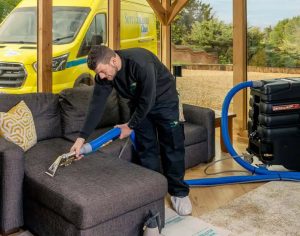Setting up a franchise can be a costly business. Purchasing a territory and renting retail premises tends to require finance and the perceived risk of taking out loans puts off many. Furthermore, successful franchisees typically work long hours, starting early and finishing late. It’s potentially rewarding but there are sacrifices involved. However, owners of home-based franchises can enjoy both lower start-up costs and overheads (business is conducted from home) and offer greater flexibility and control over hours. On top of that, they still get the benefit of running a business with a tried and tested business model. “
Trends
Running a business from home has never been more practical as a result of affordable IT, cloud computing, mobile technology and the proliferation of the internet into all types of industries. Additionally, as people have come to realise that they can no longer rely on large institutions or the public sector for work, there’s been a surge in self- employment in recent years. As a result there’s been renewed interest in home-based franchising as a way to run and own a business. It’s a trend that Cathryn Hayes, head of franchising at HSBC, has noticed and she believes it makes good business sense. “With the rise in the numbers of people becoming self-employed and advances in technology making it easier to work from a variety of locations, it is not surprising that there is an increasing number of home-based franchises,” she says. “
The right people
Franchisees tend to be fairly experienced professionals that want to run their own businesses. There are a variety of reasons why they take this step, but one which is prominent is the need to balance work with family life. For this a home-based franchise can be ideal as it enables both of the above.
Freddie St George is the managing director of Raring2go!, a magazine and website franchise which is aimed at parents with young children. It has 50 home-based franchisees across the country all of whom are women, some single mothers. St George says the franchisees aren’t part- time, however the business is suited to those who need to handle the school run and look after children. “The business is about advertising revenue through the magazines, which our franchisees sell to their local communities. We handle all the printing and distribution centrally. It’s not part-time but it is flexible and it is angled towards families.”
Raring2Go is a franchise well-suited to those with sales skills and people who are good at maintaining client relationships. However, there are big differences between a busy sales office to working at home by yourself, and this is something which both franchisors and franchisees need to take into account. “We are offering people a chance to run a business from home which is a discipline that needs to be mastered and it’s not for everybody,” advises St. George. “Working from home can also be lonely. We have a Facebook group for support and sometimes our franchisees say they need a ‘bit of a push’ and you can bet that within seconds somebody will come on and encourage them.” “
A family affair
Franchisors will select their people carefully, but both parties need to be aware that running a home-based franchise will have a considerable impact on the home life of any family involved. Franchisees need to consider which parts of the house will be used for business, and franchisors need to assess whether their plans are realistic.
Often franchisees just require a room which can be used as an office, but this can be a big change for some families. “We tend to suggest that people should set aside a room in their house for work, so they ‘go to work’ while at home,” says St George. “When we interview people we often ask to meet their partners too. This is because running a business from home will have an impact on the house and they will need the support of their partner. Franchisees need to have their partners 100% behind them, although we do have some single mums as well.”
Typically, office-type activities are legal in most dwellings and do not require any additional permission to be granted by the authorities. However, businesses that require machinery or which produce high levels of waste would be wise to consult their local councils and check their home insurance agreements. Also, those who rent property should re-read the terms of their rental agreement in case running a business from the premises is not allowed.”



































